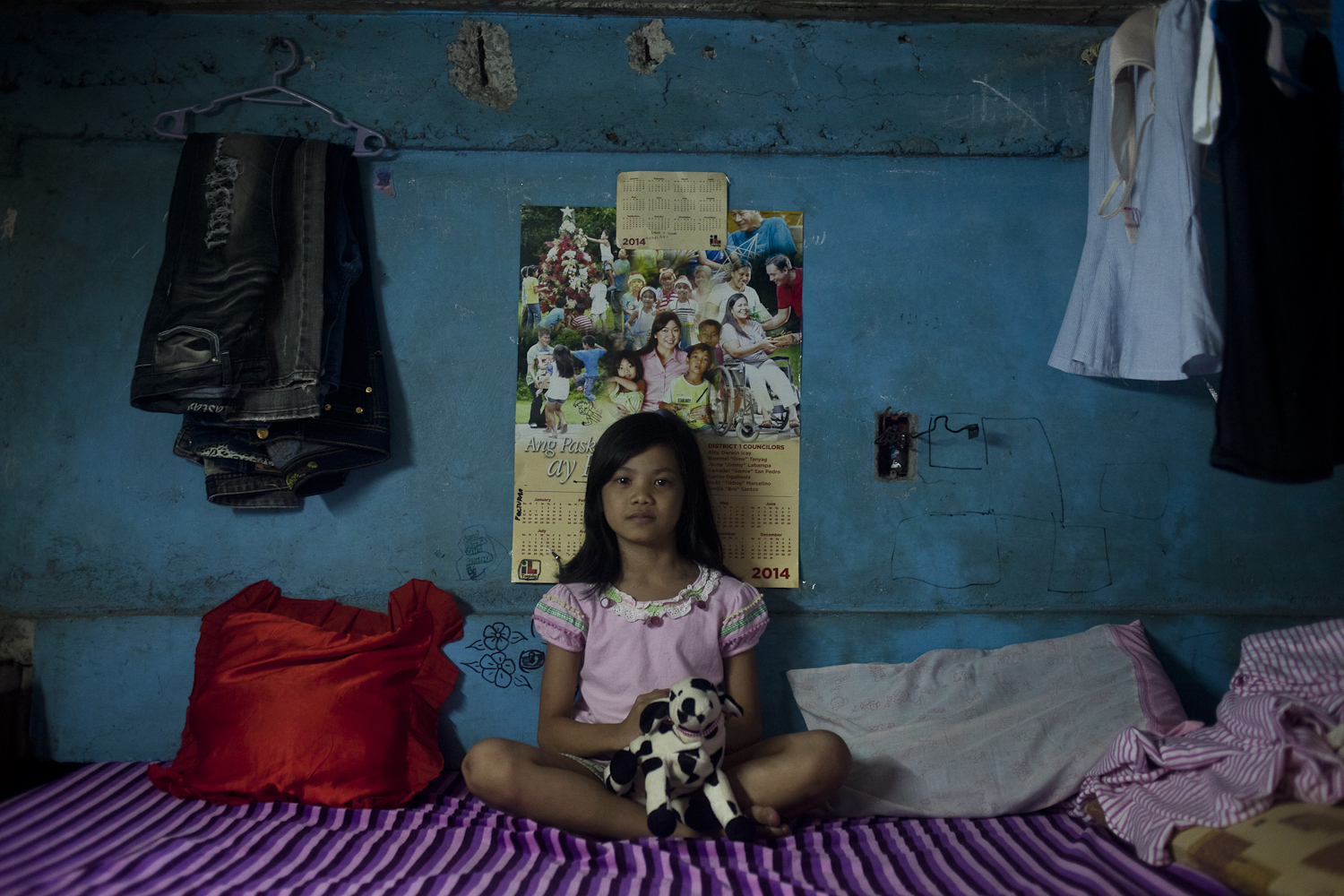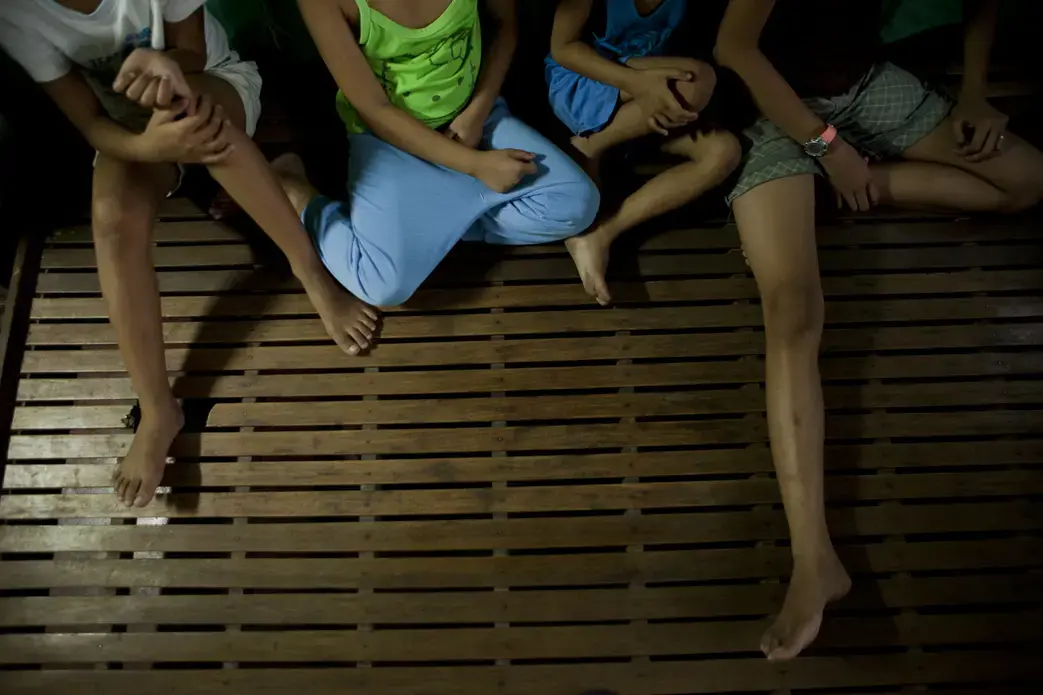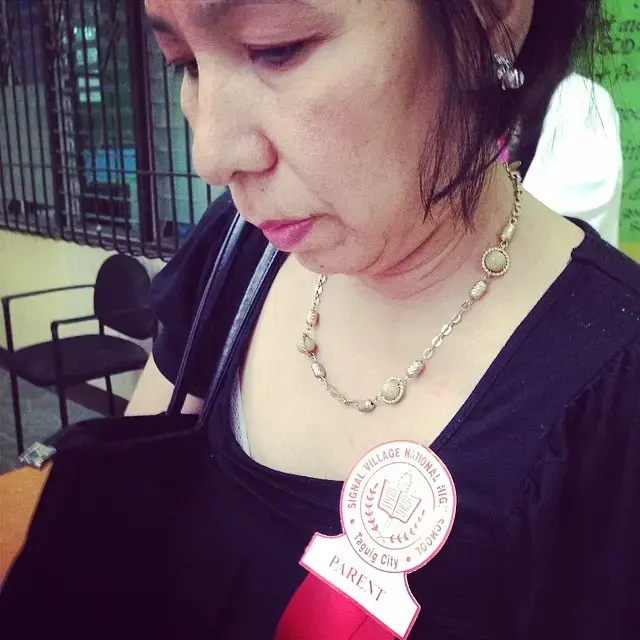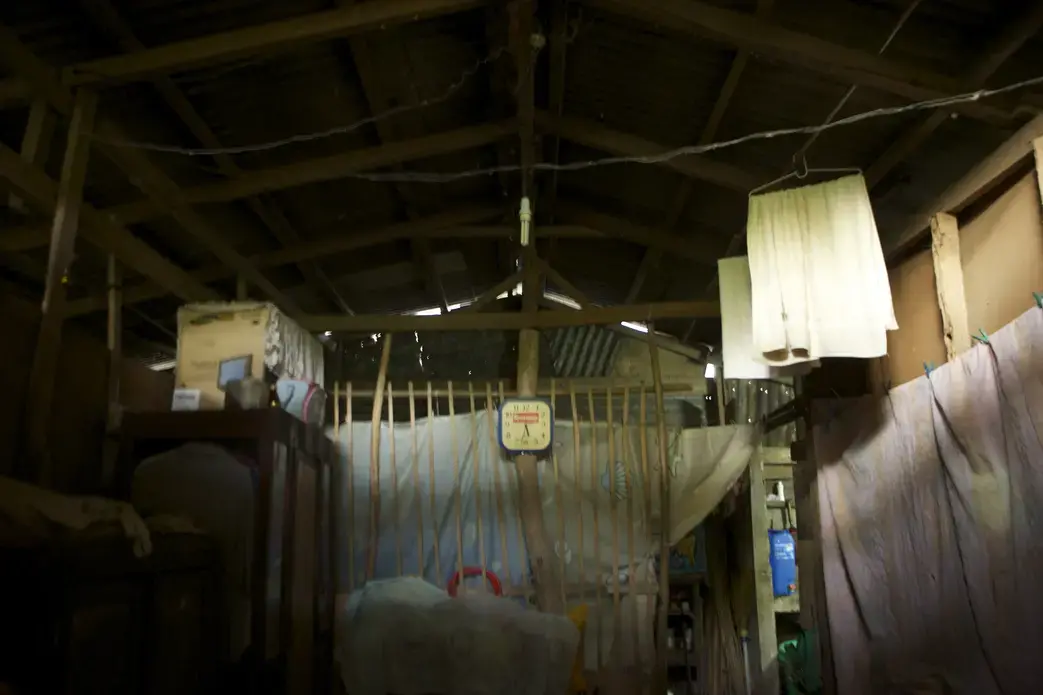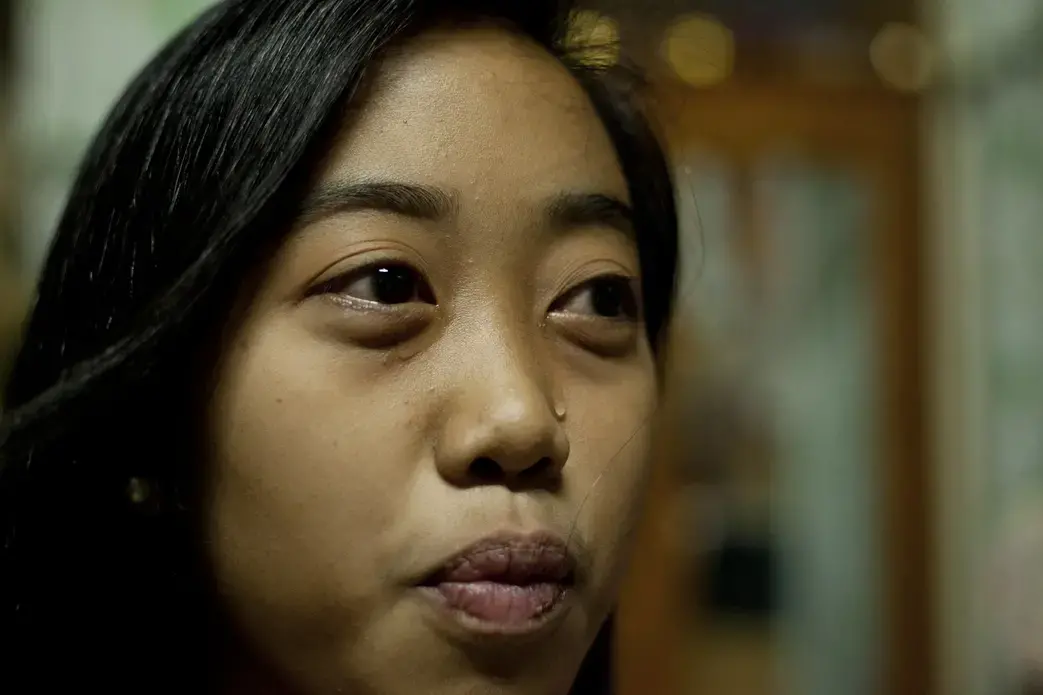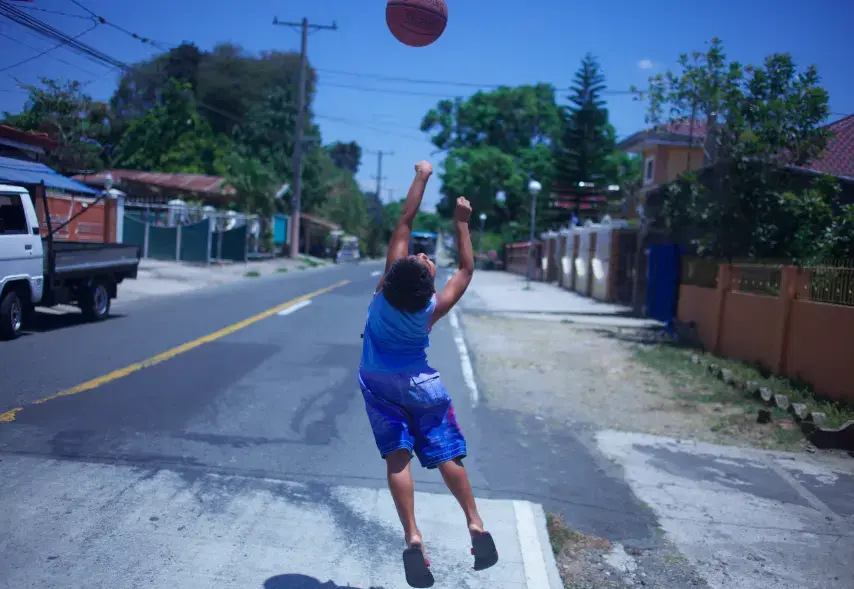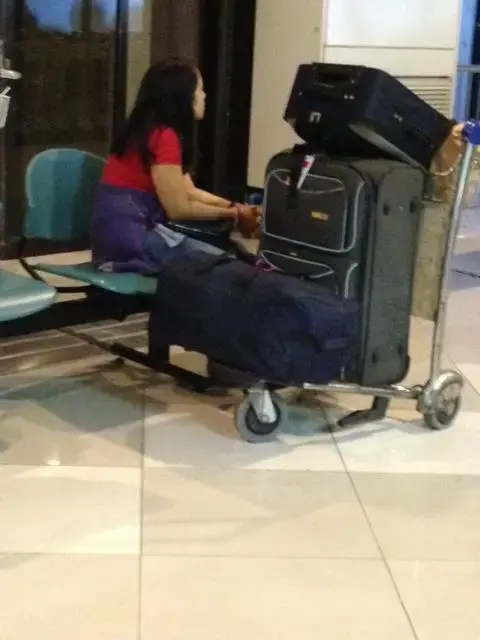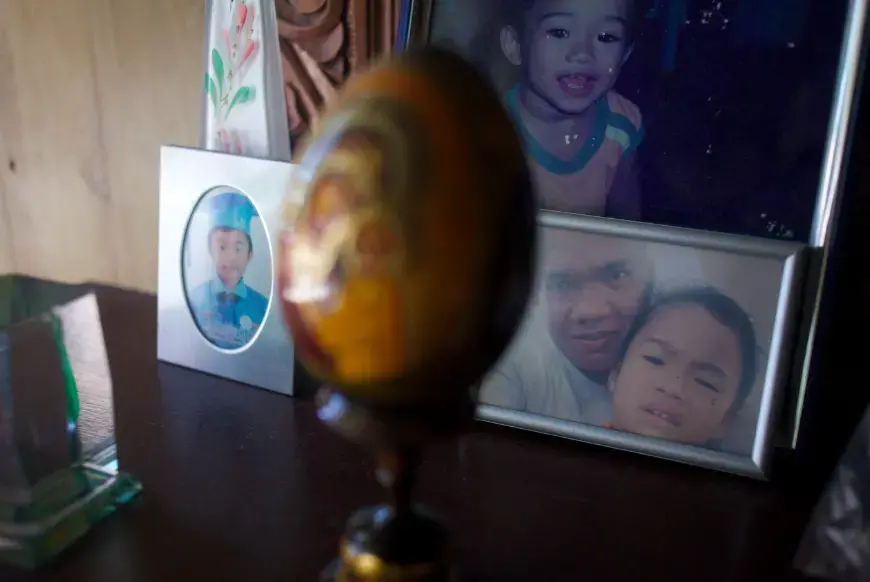It's easy to account for Overseas Filipino Workers (OFWs) in terms of the number of those who are deployed each year and the billions of dollars they send back home in remittances—money that keeps the Philippine economy afloat.
But how do we quantify the cost of the years spent far away from their loved ones?
The badge of parenthood
Like many mothers, Mary Beth Manguerra, works hard to give her children the one thing that will ensure a better life for them: an education.
In that sense, Mary Beth would be like any other working mother except that since she works as a nanny in Riyadh, Saudi Arabia, she cannot always attend school activities like graduation.
But today is different.
Her son, Jomar, is finishing a degree in automotive technology and her 16-year-old daughter, Johbe Ann, is graduating from high school at the top of her class. Mary Beth flew from Riyadh to be at their graduation.
"When I went up on stage with Johbe and put the medal around her neck, I felt like I was the one getting a medal," Mary Beth sighed happily, with relief.
Today Mary Beth went through her own rite of passage: seeing her children graduate and being able to wear the badge of parenthood. (Read more about Mary Beth Manguerra and her family here)
What absence does
When *Carlo's mother left to work in Dubai as a nanny, he was about 5 or 6 years old. He didn't understand what "working abroad" meant, but he was happy to see his mom go.
"She promised that when she came back, she would buy me a bike," the 12 year old said innocently.
His mother has been away for some years now and the last time Carlo saw her was last Christmas.
She hasn't been calling lately and he doesn't know why. It's been about two or three months since she last called and they can't call her because her employer will get mad if they see her talking on the phone.
Carlo's grandmother and his mom's sister take turns looking after him, but since both of them have to work, he often finds himself at home alone. Sometimes he doesn't go to school because there is no lunch money or because no one will notice anyway.
"The saying, 'absence makes the heart grow fonder,' simply isn't true sometimes," said Lily Brul, president of the Laguna OFW Confederation.
"Sometimes absence just makes the heart forget. It doesn't just happen between a husband and a wife. It also happens between mothers and their children."
While there are no concrete statistics available, in 2008, various non-governmental organization (NGOs) pegged the number of children left behind by OFWs at 9 million.
Too much, too soon
"Napapagod din po ako minsan. Kasi nang nag-abroad si Mommy, pagkagising po, maglilinis ako, tapos pagkagaling sa school maglalaba at magluluto. Tapos nun, patutulogin ko po yun mga kapatid ko," said Maryknol, talking about her typical day which had both academic and domestic responsibilities.
(I get tired, too sometimes. When Mama left for abroad, I've had to clean up the house before going to school. Then after school, I would wash clothes and then cook. Then, I would put my brothers and sisters to sleep.)
She was only 14 years old.
Many studies show that when a mother leaves to work abroad, it is the girls – regardless of birth order – who rise up to the task of taking on the roles and responsibilities of their mother.
"No matter her age at the time of her mother's departure, it is the girl in the family who will take over managing the house and taking care of the other children," said Mai Dizon-Anonuevo, executive director of Atikha, an NGO working with OFW families in Laguna.
"She may have older brothers, but birth order doesn't matter. The oldest girl among the children will take on the role of the mother," Anonuevo said.
Even if
Joy has a lot to look forward to. Her scholarship for the upcoming school year was again approved; and, by next year, she will graduate with a degree in mathematics.
Plus, the 19 year-old shared, "Nangako si Inay na uuwi next year sa para sa graduation ko."
(Mama promised that she would come home next year to see me graduate.)
It will be the first time for her mother, Norma, to see either of her children graduate.
A single mother, Norma left Joy and her older brother, Jim, in the care of her mother to work as a nanny in Abu Dhabi.
She has seen her children twice in the 8 years that she has been away.
"Alam ko, hindi magiging ganito buhay namin [at hindi aalis si Inay] kung hindi kami iniwan ng tatay namin. Kaya nag-aaral ako ng mabuti para maipakita sa tatay ko na kahit wala sya, ok lang kami."
(I know our lives would not have turned out this way [Mama would not have left] if our father did not leave us. That's why I study so hard. I want him to see if even if he left us, we're fine without him.)
The boy named Jake
The idea of bringing family photos to the migrant mothers I was going to interview in Dubai and in Paris did not occur to me until I saw this picture.
This is *Jake. His mother, Mila, left to work abroad in Paris when he was 5 years old.
As an undocumented migrant, Mila cannot exit France and has not seen her family for the last 3 years. It will take many more years before she can get a working permit and come back to the Philippines.
Jake talks to his mother everyday on Skype and Viber, which are installed both on their PC and tablet.
On the day that we visited Jake and his father to conduct our interview, Jake was the typical mischievous 8-year-old who refused to sit still for a photo.
Our photographer, Geric, went out of his way to get Jake to warm up to him, following Jake around while our researcher, Nico and I interviewed his father.
At the end of our very long shooting day, as I was reviewing the outtakes, I saw just how much effort it took to get a decent photo of Jake. There were pictures of lumpy blankets molded in the shape of the young boy it concealed, Jake face down on the floor and even some shots of doors that were shut as Jake tried to avoid Geric's shutter.
And then there were these photos of Jake going to the basketball court.
The photos were taken in a rapid succession and if you viewed them, it was like watching Jake in action and in his element. There was Jake sticking his tongue out as he bounced the ball in front of his opponent; Jake in earnest as he aimed for a shot; Jake stretched and jumping high to throw the ball and finally, Jake triumphantly smiling into the camera when he made a basket.
Then it hit me. Has his mother ever seen him play basketball?
At the airport, there are no goodbyes
When a Filipino woman leaves her family to work abroad as a domestic worker or nanny, she knows it will be years before she will see her own children again.
Despite the pending years of separation, there are no teary-eyed, last minute goodbyes at the airport.
Farewells are risky and not to be indulged in. It will allow guilt to set in.
"I really did not want my girls to come and see me off. Only my husband came," said Leilani, a domestic worker and caregiver in Taiwan. "I knew they would just cling to me and we would just end up crying. How could I ever leave them?"
Sometimes goodbye, in any form, is too painful.
"We have stories of mothers who just told their children they were going to the market, but got on a plane and never came back," said Luila Garcia, a field officer of Atikha, an NGO that promotes financial literacy among OFWs and their families.
"These mothers don't do it to be cruel. They just don't know how to say good-bye."
Women represent 83% of the 52-100 million domestic workers worldwide.
According to UN Women, in the Philippines, 97% of total deployed OFWs in 2009 were female; one in every two female OFWs is an unskilled worker.
In the Philippines, 97% of total deployed OFWs are female and one in every two female OFWs is an unskilled worker.
*Editor's Note: Names have been changed.


